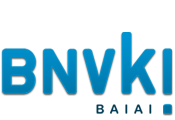On February 5th 2019, a Decision Intelligence Seminar was held at KU Leuven Campus De Nayer in Sint-Katelijne-Waver. This multidisciplinary event was organised by a consortium of companies together with three different KU Leuven research groups: the LIRIS group of the Faculty of Economics and Business, the DTAI group of the Faculty of Engineering Science and the EAVISE group of the Faculty of Engineering Technology.
In the current age of Deep Learning, the seminar served as a powerful reminder of the potential of knowledge-based systems. It focused on several industrial use cases of state-of-the-art Knowledge Representation (KR) technology. Representatives from the company Saint-Gobain discussed the application of this technology to automated product design, Teal Partners discussed the use case of wage calculations and SCSI bvba talked about applications in the setting of a notary office. In addition, IAM4 talked about application in smart contracts, while financial applications where discussed by The Banking Scene.
The event focused specifically on KR methods to represent the decision knowledge that underlies company’s day-to-day operational decisions. Dorien Bauwens from Informatie Vlaanderen discussed the importance of a proper management of this decision knowledge in a governemental context, while Martin de Villiers addressed the same topic in the context of South-African health insurance.
To facilitate decision management, the OMG group has recently published the Decision Model and Notation standard, which allows formal models of decision knowledge to be constructed and maintained by domein experts, without requiring the help of knowledge engineers or IT staff. An introduction to DMN was given by Jan Vanthienen (KU Leuven, LIRIS), one of the co-authors of this standard. In several of the presentations, companies reported very positive experiences with this standard.
The emerging picture was one in which the DMN “front-end”, coupled with powerful KR tools as “back-end”, offers a way of reliably automating and analysing decision processes, which can provide a significant amount of added value to companies. Especially the ability to explain and understand decisions was often cited as very important by the industrial speakers.
